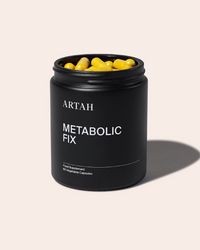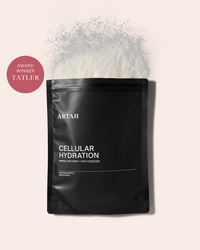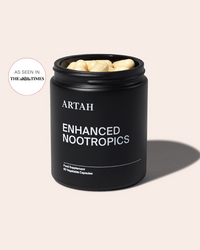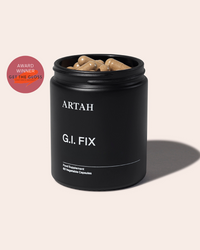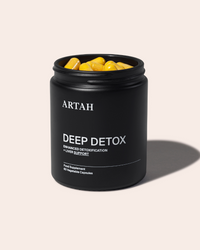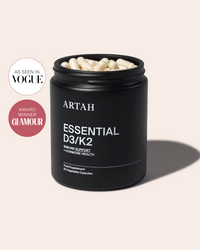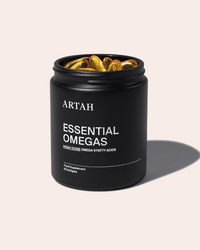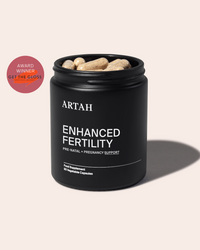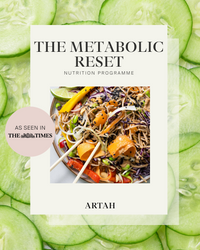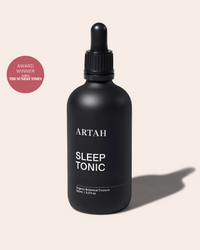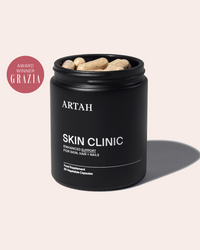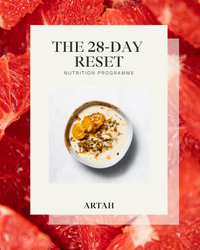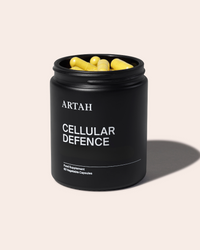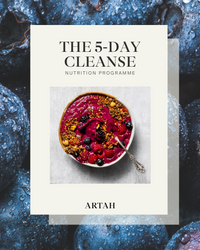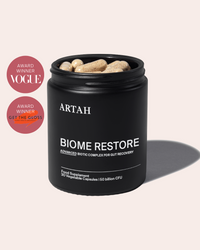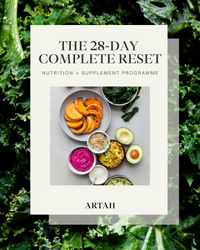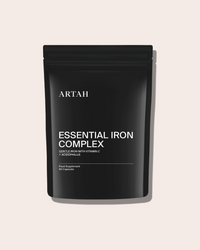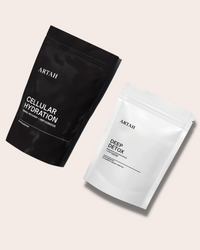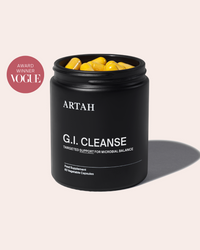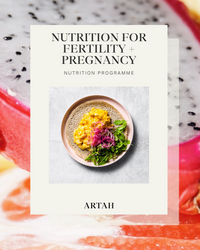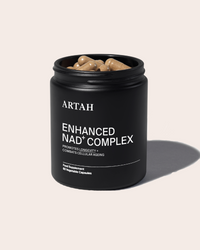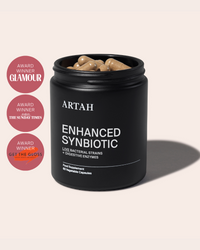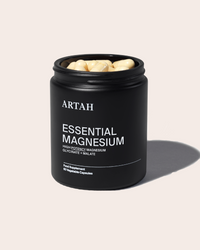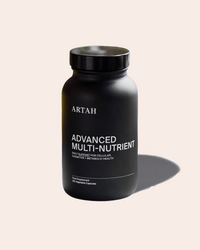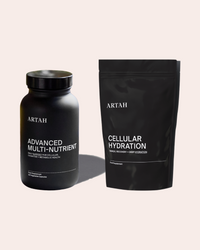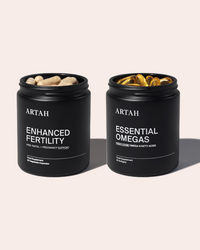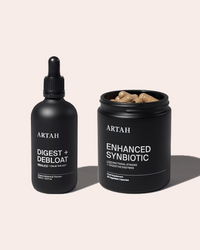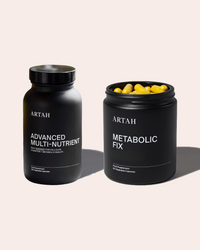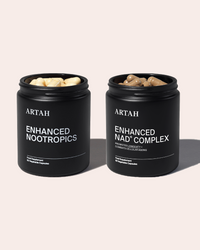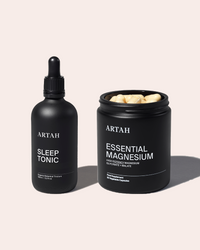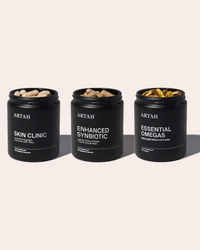This Syndrome Affects 1 in 10 women
PCOS impacts about 10% of women in their reproductive years and is one of the leading causes of infertility in young women today.
Symptoms can include irregular periods, acne, excess facial and body hair, hair loss on the scalp, increased belly fat, anxiety, insulin resistance and increased testosterone. Like many female conditions, it has been largely misunderstood and the birth control pill is often offered as first line therapy. Whilst the pill can be successful in managing some of the distressing symptoms of PCOS, it doesn’t address the root cause and - for women already on the pill - can often delay its diagnosis.
The good news is – whether you are on the pill or not – dietary, lifestyle and supplement interventions can be incredibly helpful in addressing both the contributing factors and symptoms of PCOS.
WHAT IT IS
The criteria for diagnosing PCOS has changed dramatically over the years as our understanding of it has evolved. In fact, ovarian cysts aren’t even a must have to receive a diagnosis. Sound odd? What was once purely thought of as a gynecological issue is now more understood as a wider metabolic + endocrine issue with gynecological implications. To be diagnosed with PCOS, women must have hyperandrogenism, plus ONE of either oligomenorrhea or polycystic ovaries. Another hallmark feature of PCOS is insulin resistance – around 50% of women with PCOS have it – which increases risk of cardiovascular complications over time. The fluctuations in insulin and cortisol also make women more susceptible to inflammation and excess oxidative stress; inflammatory markers are often raised in PCOS, making nutritional and lifestyle interventions even more important.
CULTIVATING A HOLISTIC APPROACH
PCOS can be an incredibly frustrating condition but cultivating a holistic approach to its management can often drastically reduce the severity of symptoms and also improve fertility outcomes.
NUTRITION
One of the most important aspects of nutritional support is the management of insulin. Studies have shown that inadequate fibre, lack of magnesium and a high glycaemic load worsen the condition, as seen in other forms of insulin resistance as well. When it comes to diet, adopting a high fibre, low sugar/starch, plant rich diet that is free from processed foods is a must. This approach also tends to reduce inflammation, improve nutrient status, and help manage cardiometabolic markers. Here are a few simple places to start:
— One of the most damaging forms of sugar is high fructose corn syrup and other free forms of processed sugar. They are drivers of excess insulin and inflammation, two of the worst things for PCOS. Aim to eliminate processed sugar and focus purely on natural sources, like fruit. The sugar in whole fruit is encased in fibre and comes alongside other beneficial vitamins, minerals and phytonutrients so is far better not only from an insulin perspective but also from a nutrient perspective.
— Go heavy on colorful vegetables; this will increase antioxidants, fiber, and polyphenols that feed the beneficial bacteria in the gut (and thus help manage weight, mood, and bowel function). Aim for 10 servings per day for the first 6 months – sounds like a lot, and it is! But this will also help you crowd out other foods and supercharge your nutrient status.
— Be mindful of your meat and dairy. Conventionally manufactured meat and dairy products have been shown to have a less favorable ratio of nutrients than their grass fed/organically raised counterparts. There’s more to consider here than just nutrient status; both red meat and dairy have been shown to contribute to elevated androgens, insulin, and worsen acne.
— Try eliminating dairy for the first few months of your programme and then bringing it back in moderation after a period of rest. Look for healthier, less inflammatory sources like goats’ and sheep's milk cheese or yogurts and aim to always choose organic. Low fat dairy should always be avoided in PCOS because it’s much higher in sugar than its full fat counterpart and has been shown to have a negative effect on insulin and blood sugar management.
— PCOS can be driven by hormone disrupting environmental toxins, so when you’re cooking at home, aim to invest in organic fruits and vegetables. It’s not essential for everything – but there are certain types of veg and fruit that have been shown to have far higher levels of pesticides. For a full list, visit the Environmental Working Groups website and check out their Clean 15 and Dirty Dozen list, which give you the best and worst veg when it comes to contaminants.
— Increase good quality sources of omega 3 fats, like wild fatty fish, nuts, avocado, seaweed, edamame, chia, and hemp.
— Add in a daily dose of extra fibre. Try starting with 1 tbsp of psyllium husk or milled flaxseed with water or mixed into a meal.
STRESS
Women with PCOS tend to have dysregulated cortisol which feeds into their metabolic imbalances, so stress management needs to have a leading role in a holistic approach.
— Make sure your exercise is balanced. Exercise is great (and a must) for PCOS, but unopposed high intensity cardio can often worsen the cortisol load. If you’re doing a lot of HIIT or intense cardio, it’s essential to balance it with activities that are less intense on your system like yoga, yin, Pilates and walking.— Try using meditation, journaling, or your choice of mindfulness activity to help manage stress levels.
EXERCISE
There seems to be conflicting information when it comes to PCOS and what type of exercise is best. Exercise is an essential tool for insulin management (not to mention stress and mindset), but because of the metabolic complexity of PCOS, it’s important to have a balanced approach.
— It’s a yes to resistance training. One of the most impactful ways to help insulin sensitivity is to improve lean muscle mass, making strength work an essential tool for metabolic management.
— Whilst high intensity exercise is ok to include as a part of your programme, low intensity exercise is better for overall management. As mentioned above, ensure you’re balancing your high intensity with stress management and lower intensity forms of exercise.
— Be mindful of recovery time. If you have PCOS, you’re more inflamed, making post exercise nutrition and recovery essential parts of your programme.
Opt for low intensity steady state cardio more often than high intensity cardio to prevent further elevating cortisol.
SUPPLEMENTATION
— Supplements that target blood sugar management can help mediate insulin resistance but can also have a positive effect on ovulation. A study in the International Journal of Endocrinology showed that supplementation with Inositol improved both metabolic parameters of insulin resistance and restored spontaneous ovulation after 6 months of use. Other studies have shown that supplementation is linked to better fertility rates and outcomes in fertility treatments.
— Other insulin heroes include Chromium, Berberine, and Alpha Lipoic Acid. In addition to Inositol, you can find these Phytonutrients in Metabolic Fix.
— Adequate Vitamin D3 levels are important; women with PCOS have significantly lower serum Vitamin D compared to fertile controls. We also know that Vitamin D status is important in insulin regulation and diabetes, so an essential one to look at. If you don’t know your Vitamin D status, we recommend getting a test and supplementing to an optimal range (over 50 ng/mol), not just an adequate range (30ng/mol).
— Omega 3 fats. Not only important for inflammation and overall health, co-administration of Vitamin D3 with Omega 3 fatty acids can improve a variety of PCOS markers. After 12 weeks, this combination has been shown to improve serum testosterone, reduce CRP (a marker of inflammation), improve mental health parameters like anxiety and stress, and increase total antioxidant activity.






